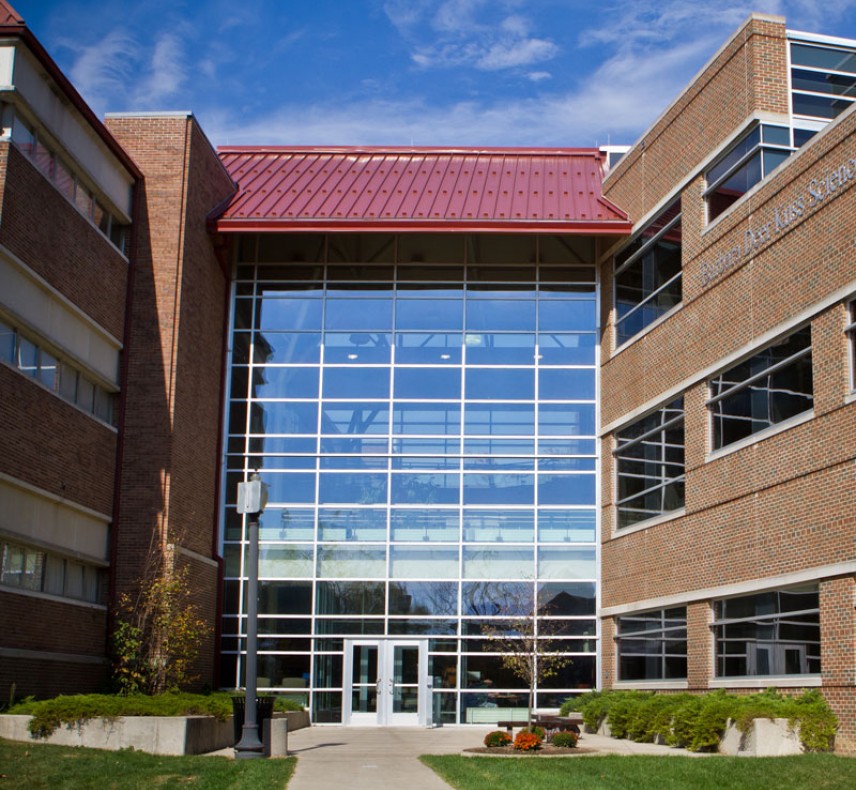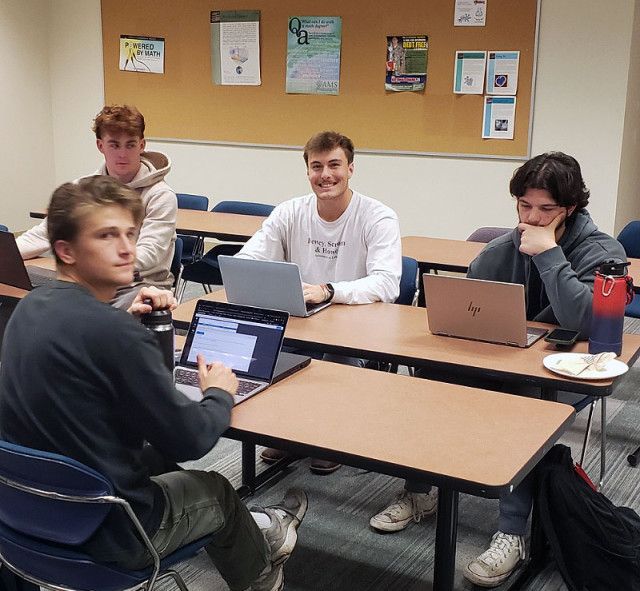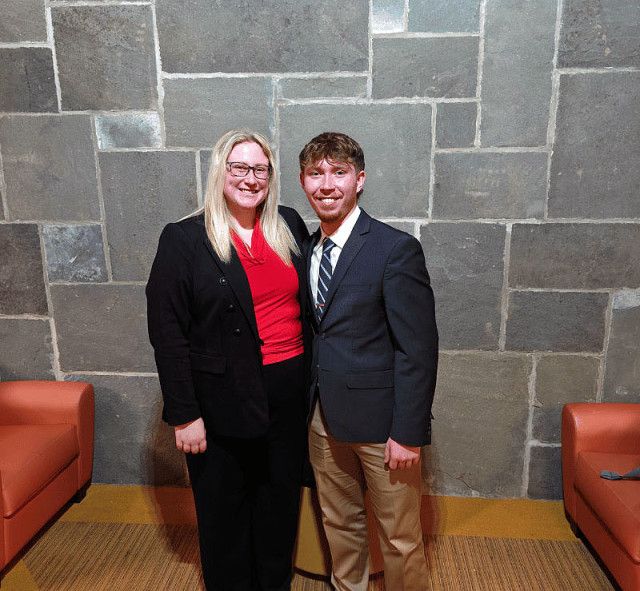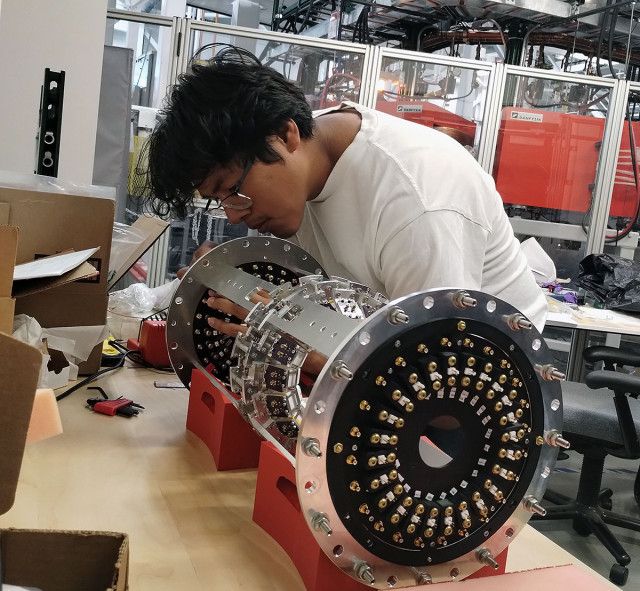Wittenberg embraces the life of the mind, promoting high standards of artistic, scholarly, and scientific inquiry among students and faculty members, all of which make research grants critical for advancing experiential learning at the University.
Physics professors Elizabeth George and Paul Voytas understand that and are providing students even more research opportunities after recently being 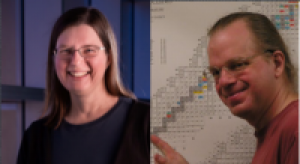 awarded two grants from the National Science Foundation (NSF). One grant will allow faculty and students to develop and construct a high-sensitivity instrument to search for CP violation (C - charge conjugation and P - parity) in positronium decay, and the second will further research on fundamental symmetries and interactions in weak and electromagnetic decays. The first grant runs through July 2022, and the second through August 2023.
awarded two grants from the National Science Foundation (NSF). One grant will allow faculty and students to develop and construct a high-sensitivity instrument to search for CP violation (C - charge conjugation and P - parity) in positronium decay, and the second will further research on fundamental symmetries and interactions in weak and electromagnetic decays. The first grant runs through July 2022, and the second through August 2023.
“The Department of Physics has been quite successful in providing meaningful opportunities for students to learn how to do research by working closely with faculty,” said George, who specializes in sub-atomic physics and physics education. “In these projects, students will be involved in developing and using state-of-the-art research equipment to investigate one of the most fundamental problems in physics. They'll learn to apply concepts from many areas of physics, develop experimental and computational skills, take on responsibility for a particular aspect of the research, and have the opportunity to go to professional meetings to present their work. This is all experiential learning that students can't get in the classroom. Being involved in a project that represents a real contribution to science is a great experience for anyone and a great motivation for many. It gives our students an advantage in the job market and in applying to graduate schools.”
Research for the first grant will involve the investigation of the behavior of sub-atomic particles to better understand the fundamental forces and particles that make up the world. The project will provide research training opportunities for undergraduate students at Wittenberg who will work closely with faculty to develop, assemble, and test state-of-the-art instrumentation, while learning how to do research at the frontiers of science. This new instrumentation will also enable a research project for at least one graduate student at Michigan State University.
“Every type of particle has an antimatter counterpart; for example, electrons have antimatter counterparts called positrons,” said Voytas, who specializes in sub-atomic physics. “Positrons are produced in certain types of radioactive decay and are probably most familiar for being used in medical PET scans. It's not fully understood why there's far more matter than antimatter in the universe. The instrument that we're developing will enable us to study positronium, which is an artificial ‘atom’ consisting of an electron and a positron, in order to learn more about the differences between matter and antimatter. We’re working with colleagues from Michigan State University, where the instrument will ultimately be based.”
The first grant was awarded at the end of last summer so work for it is still in the early stages, especially with COVID-19.
“This past year a couple of our senior physics majors worked with us on this project,” George said. “One student developed an apparatus for testing different methods for making positronium. Another tested a new type of gamma-ray detector that we plan to use in the finished apparatus. Currently we’re doing computer simulations in order to finalize the design of the instrument. After we finish the design of the instrument, students will work with us and our Michigan State colleagues to assemble and test it. Students will then participate in research with the instrument, helping to plan experiments and analyzing data. We hope to make a significant advance in understanding the origins of the differences between matter and antimatter.”
The second grant, which began Sept. 1, will fund the research to be conducted with the completed apparatus, as well as research projects on the beta decay of carbon-14 and fluorine-20.
Both projects will enable talented undergraduate students at Wittenberg University to develop instrumentation and computer skills important for many post-college paths in STEM fields while learning to think independently, solve practical problems, and communicate clearly to prepare them for careers or graduate work in physics, engineering, and related fields.
George, who earned the 2019 Wittenberg Alumni Association Award for Distinguished Teaching, has designed courses in biomedical physics, nuclear and particle physics, electronics, chaos and fractals, and pattern formation at Wittenberg. She has been involved in physics education research, studying how students' use of computers in the physics laboratory affects their learning about momentum and energy. Active in regional and national physics organizations, George, who came to Wittenberg in 1998, has helped organize national conferences on teaching experimental physics, and recently served as the president of the Advanced Laboratory Physics Association.
Voytas, who joined the Wittenberg faculty in 1998, primarily studies the weak interaction – the fundamental interaction responsible for (among other things) nuclear beta decay, which is often referred to as ‘the fourth fundamental force of nature’ (to go along with gravity, electromagnetism, and the strong nuclear force). His experimental work has involved using novel methods to manipulate and study radioactive atoms in order to investigate their properties or beta decays in more detail and with more precision and control. This has involved work at the Experimental Nuclear Physics Group at the University of Wisconsin-Madison as well as work at the SUNY Stony Brook Nuclear Physics Lab and at the National Superconducting Cyclotron Laboratory.


